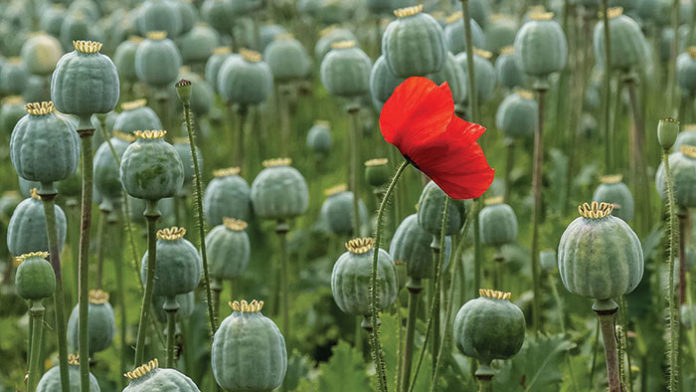By Muhammad Luqman
Over the past three decades, Pakistan has reduced poppy cultivation by 87 percent by encouraging farmers in the north-western parts of the country to shift to other crops like vegetables.
According to a United Nations Office on Drugs and Crime report, large amounts of opium are only cultivated in Myanmar, Afghanistan, and Colombia while a small amount is being produced in Laos, Mexico, and Pakistan.
The United States has partnered with Pakistan in these ongoing efforts. In a bid to continue to combat poppy growth, it recently provided seven new Toyota Hilux pickup trucks to Khyber Pakhtunkhawa province of Pakistan.
The Khyber Pakhtun Khawa government will use the vehicles to implement crop control and related development projects in the districts of Bajaur, Mohmand, and Khyber.
The donation is part of an overall Rs 589 million ($5.1 million) donation to the provincial government to combat poppy cultivation in the merged areas.
Over the past 37 years, the United States has invested $60 million in Pakistani efforts to support rural communities in developing economic alternatives to narcotics production; expand legal employment opportunities, especially for women; provide training in sustainable farming techniques; construct roads that extend the writ of the government and provide farm-to-market access; and construct small water supply projects that increase the viability of growing alternative crops.
“We are proud to continue our longstanding partnership with the KP government and former FATA Secretariat, which has resulted in a significant decrease in poppy cultivation, ultimately benefitting the people of KP and the rest of Pakistan,” says Deputy Chief of US Mission John Hoover.















